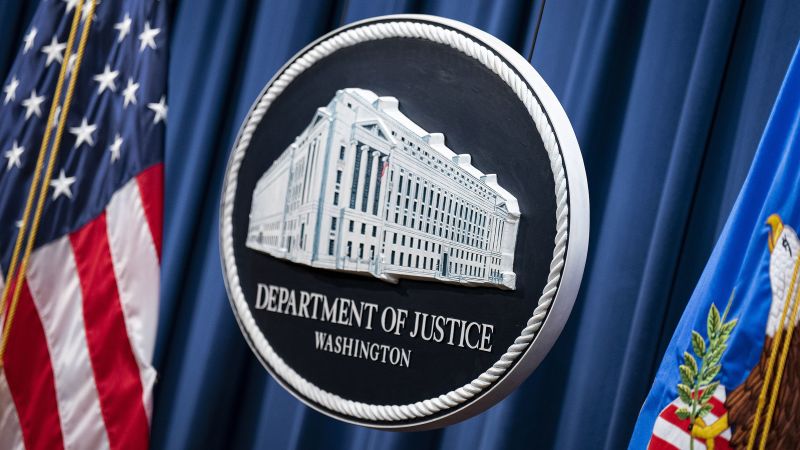As tensions rise within the Justice Department regarding the position of US Attorney in New Jersey, a potential standoff is emerging over the appointment of Desiree Leigh Grace. Alina Habba, the current US Attorney, is set to see her interim appointment expire on Friday, leaving room for intense debate and competition over who will fill the vacancy. Republican Attorney General Pam Bondi has made her stance clear, having already dismissed Grace from her role as New Jersey’s first assistant US Attorney, complicating the situation further.
Grace’s future role hinges on a critical event that must occur at the stroke of midnight on Friday. In order to officially assume the position as US Attorney, Grace would require an oath from a federal judge shortly after Habba’s term ends. This act would itself be a direct challenge to Bondi’s authority, as she remains adamantly opposed to Grace’s appointment, having accused the judges of attempting to undermine President Donald Trump’s appointment powers through what she claims to be strategic political maneuvering.
The uncertainty surrounding the Justice Department’s plans adds an additional layer of complexity to the unfolding drama. Bondi and Todd Blanche, the deputy attorney general, have openly criticized the federal judges’ decision to appoint Grace, implying that it may be politically motivated. Given the contentious political climate, both within the administration and across party lines, the implications of Grace’s potential appointment cannot be overstated. If Grace does take the position, it is within the president’s power to dismiss her, creating a delicate balancing act between judicial authority and executive power.
One of the possible strategies the Justice Department might employ is to preemptively intervene and appoint another interim US Attorney before Habba’s resignation takes effect. This tactic has been utilized by the department in various instances and would ideally allow them to maintain a firm grip on the appointment process, circumventing the judges’ influence altogether.
Grace has publicly responded to being ousted, taking to LinkedIn to clarify her position and intentions. In her heartfelt message, she expressed gratitude to her colleagues and asserted her belief that her professional conduct had never been swayed by political affiliations. She stated unequivocally that her appointment by federal judges was based on merit. Her determination to fulfill what she perceives as a lawful obligation underpins her public stance, as she concluded her post with a vow to take over the responsibilities tied to her recent nomination.
Specifically, Grace noted, “Yesterday the District Judges for the District of New Jersey selected me to serve as the United States Attorney for the District of New Jersey. It will forever be the greatest honor that they selected me on merit, and I’m prepared to follow that Order and begin to serve in accordance with the law.” Her comments also emphasized her non-partisan experience, highlighting her tenure under both Republican and Democratic administrations and her repeated promotions within the Justice Department over the past five years.
Habba and officials from the Justice Department have refrained from providing commentary on this ongoing situation when contacted for statements. Furthermore, Grace has not responded to further inquiries from CNN for additional clarification.
This dispute highlights a broader issue about the slow pace of confirmations for Trump’s U.S. attorney nominations in the Senate. The situation has reached a critical point, as interim Attorneys like Habba may exceed the legal limit of 120 days of service without an approved nominee. Federal law stipulates that if the administration vacates the position and the Senate fails to confirm a candidate, federal judges within the district have the authority to appoint a temporary replacement. All of these elements contribute to an increasingly intricate and politically charged environment surrounding the future of the US Attorney’s office in New Jersey.











